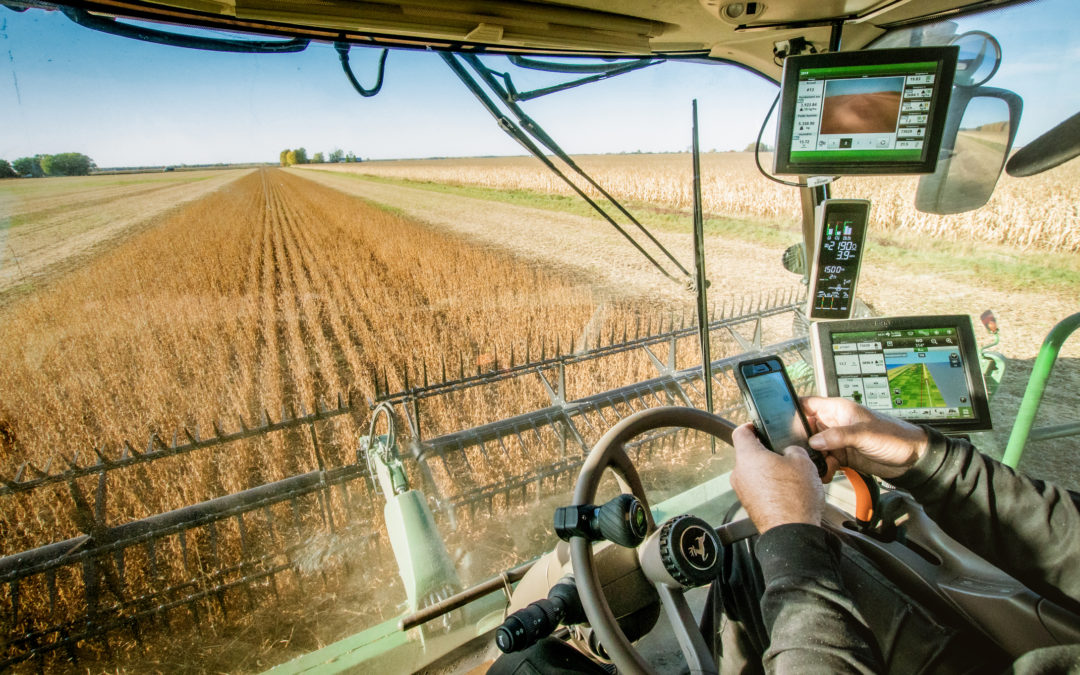One term Congresswoman Abby Finkenauer has been clear in her support for UAW workers on strike from John Deere. However, production delays initiated by supply chain woes and labor shortages are now being exacerbated by striking workers, inflicting trauma on one of America’s most important demographics, the family farmer.
This. Holding the line and fighting for their families, their neighbors, and the next generation of of hardworking Americans.
I’m so damn proud to be an Iowan and to ALWAYS stand on the side of working families like the one I grew up in. Pay attention. This is important folks. https://t.co/lUw7dOC3ei
— Abby Finkenauer (@Abby4Iowa) October 14, 2021
In October of this year, more than 10,000 John Deere employees went on strike. According to CNN, this strike is one of the largest private company strikes conducted since the same union, the UAW, went after GM just a few years ago.
Abby Finkenauer, former Congresswoman from Iowa’s first district, has spent considerable time on the campaign trail and social media praising UAW strikers and pledging her support. However, absent from these campaign stops and Twitter blurbs is any mention of support for the folks the strike is impacting: Farmers.
The strike, and by extension Finkenauer’s support, has only exacerbated an already tough year for Deere, who was forced to stop taking orders for some models for next year due to production concerns and supply chain bottlenecks. Those production delays, now made even longer by the strike, could prove to be fatal to family farms.
Initially, Iowans seemed supportive of union members striking. However, there has been a shift in public sentiment. Many that the UAW has now pushed its members beyond what is appropriate after rejecting what Deere called its last, best offer.
Finkenauer, rather than taking on a leadership role and trying to collaborate with both sides to find an agreement that is mutually beneficial has instead inflamed the situation for her own benefit, The strike now seems to be on a trajectory of not just harming union members by preventing them from signing an agreement, but also farmers who are dependent on the company’s machinery to bring their goods to market.
The equipment shortage has created concerns over this year’s harvest And next season’s planting. In addition to hurting farmers’ pocketbooks and putting their livelihoods at risk, the strike could affect the nation’s food supply chain.
Here is an excerpt from an NBC news article on the topic:
Some farmers are concerned that the shortage could grow worse after 10,000 John Deere workers went on strike last week. […]
‘It’s got us worried for sure,’ said Eric Hopkins, the senior vice president of Hundley Farms, which boasts 20,000 acres of mostly vegetables in central Florida. ‘They’re already low on inventory and parts right now. A strike is only going to exacerbate things, make it worse. If it lasts for a while, not only will they not have new tractors, but when you have a breakdown and there’s no parts, your tractor is just going to sit there not being able to harvest or plant a crop.’…
A long strike could hamper the country’s food supply chain, which has suffered shortages since the start of the coronavirus pandemic, which further delayed John Deere’s ability to deliver products and parts in a timely manner. Farmers also worry that a delay could affect their increasingly thin margins.”
The Cedar Rapids Gazette also covered the story from the perspective of farmers:
Robb Ewoldt, a soybean and livestock farmer outside of Davenport, said he’s been lucky so far in not having issues with getting parts he needs.
While the strike isn’t a situation he needs to actively deal with, it’s a concern that sits in the back of his mind. There are many what-ifs that could become real problems — like equipment failure or need to replace a part that just can’t be found.
Those what-ifs can snowball. If an integral part breaks, he may not be able to replace it. If he can’t replace it, the equipment may not run right, or at all. If it can’t run, he can’t harvest. He knows one farmer with a broken combine and no assurances that it will be fixed soon.
“That’s a crop that we grow, we sell to pay our bills and if we can’t harvest it and sell it, we’re in trouble,” Ewoldt said.
Today, the Wall Street Journal did a deep dive in a piece they called Deere Strike Sows Worry in Farm Country; Farmers, dealers fear delayed deliveries, higher prices as strike at tractor maker stretches beyond three weeks; ‘it’s a chain reaction’
Farmer Dale Reimers, who grows corn, soybeans and other crops across 25,000 acres in eastern North Dakota, said he ordered three new Deere tractors and two crop sprayers before the strike. Delivery for some equipment already has been delayed for months, and it is unclear when the rest of his order will even be built, he said, adding that he worries the strike could further complicate things.
Late delivery of his sprayers could cut into his crop production next year, Mr. Reimers said, because his older equipment can’t apply weed-killing chemicals to fields with the same precision as the new machines he ordered.
“That’s going to have a big impact on profitability and production results on the dirt level,” said Mr. Reimers, who relies exclusively on the company’s equipment.
While the decision to embrace unions early in the primary is likely intended to shore up weak support with her liberal base, the decision to ignore the plight of farmers will probably be unpopular in the general election. More than one-third of Iowa’s economy is connected to agriculture, according to the Iowa Farm Bureau.
This isn’t the first time Abby Finkenauer’s political instincts have been called into question; Iowa Field Report covered Finkenauer’s decision to support Terry McAuliffe last week despite his toxic brand of politics, anti-parent positions on education, and low position in the polls.
If she wins her primary, Finkenauer will face US Senator Chuck Grassley in the general election. In addition to a lifetime of public service, Grassley still actively farms on his family’s property in Butler County.
The most recent poll conducted by the Des Moines Register shows Finkenauer with just 37% support among Iowans. The number nearly mirrors President Biden’s approval rating at 38% of voters. The Cook Political Report rates Iowa’s US Senate Seat as “Solid Republican.”



